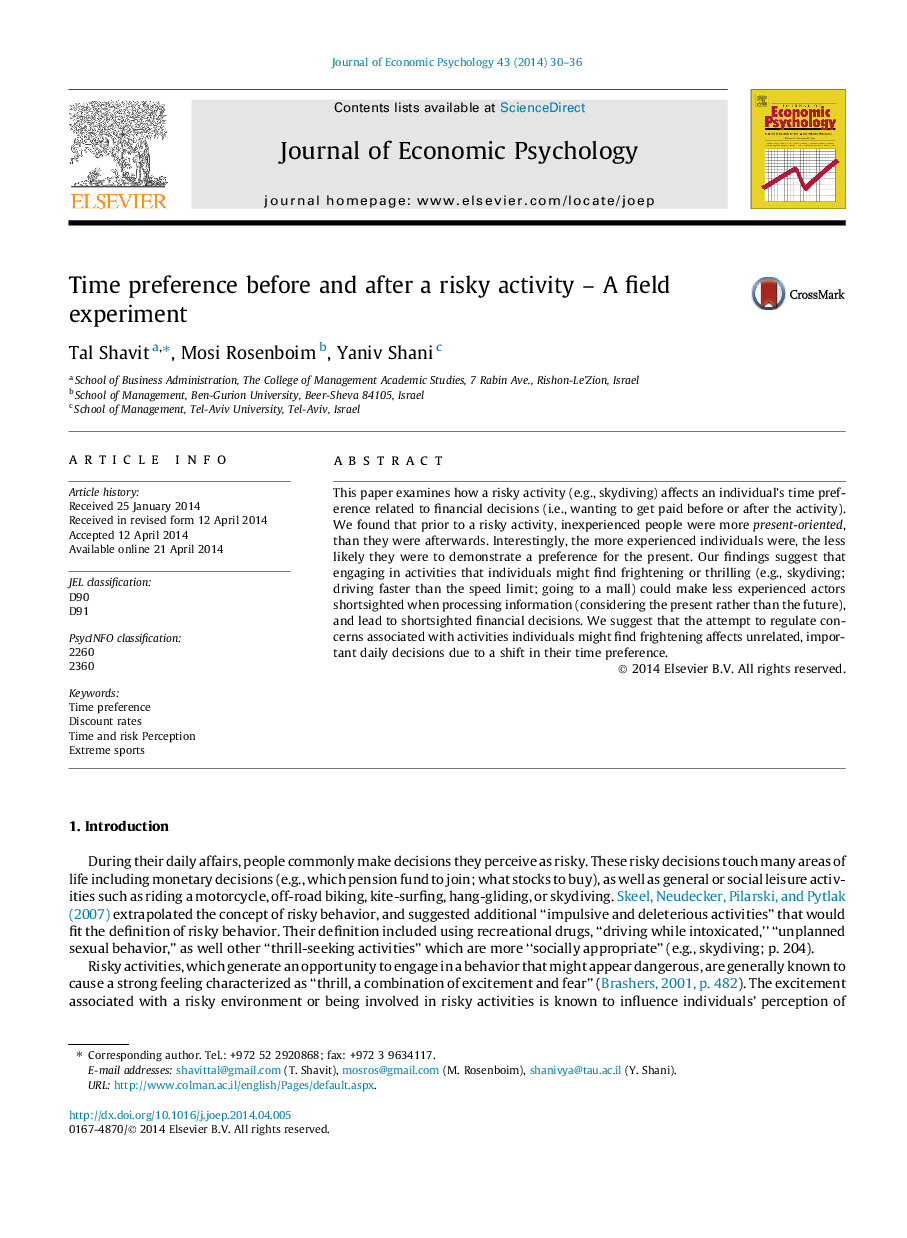| Article ID | Journal | Published Year | Pages | File Type |
|---|---|---|---|---|
| 884949 | Journal of Economic Psychology | 2014 | 7 Pages |
•This paper examines how a risky activity (e.g., skydiving) affects an individual’s time preference.•We examine in a field experiment time preference before and after skydiving.•We found that prior to a risky activity inexperienced people were more present-oriented.•Experienced people are not affected by the risky activity.•Concerns associated with frightening activities affect unrelated, important daily decisions.
This paper examines how a risky activity (e.g., skydiving) affects an individual’s time preference related to financial decisions (i.e., wanting to get paid before or after the activity). We found that prior to a risky activity, inexperienced people were more present-oriented, than they were afterwards. Interestingly, the more experienced individuals were, the less likely they were to demonstrate a preference for the present. Our findings suggest that engaging in activities that individuals might find frightening or thrilling (e.g., skydiving; driving faster than the speed limit; going to a mall) could make less experienced actors shortsighted when processing information (considering the present rather than the future), and lead to shortsighted financial decisions. We suggest that the attempt to regulate concerns associated with activities individuals might find frightening affects unrelated, important daily decisions due to a shift in their time preference.
